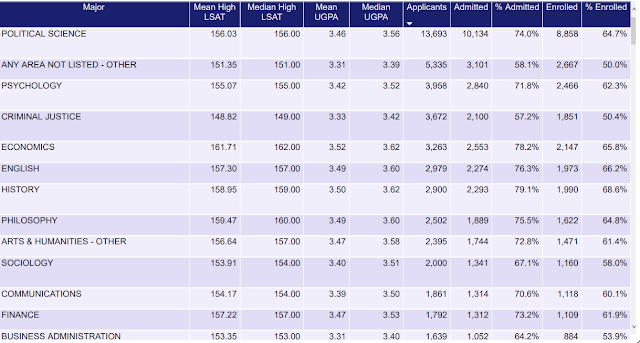I recently listened to an episode of the Podcast Word on
Fire in which Bishop Robert Barron and Brandon Vogt discussed Why
Liberal Arts Matter. Although I agreed with their conclusions regarding the
need to support the humanities, I disagreed with their overall interpretation of
a liberal arts education.
Bishop Barron defines liberal arts by going back to the root of the word liberal in
the Latin word liber, which means free. He argues that in the context of liberal arts, free refers to disciplines
that are free from utility. He provides as examples of liberal arts English and Philosophy, which
he claims do not have practical utility, but are higher sciences because they are
simply good in themselves. Vogt notes that the liberal arts are “sometimes called
the humanities.” I think the notion that the liberal arts and the humanities
are synonymous is actually fairly common. Leaving aside the claim that the humanities do not have utility, I don’t think that making liberal arts and humanities synonymous is supported by the traditional use of the term liberal
arts, and I do not think it is a useful definition for the present.
The traditional understanding of the liberal arts was that it
referred to the education appropriate to a free person, a person who was fully
eligible to participate in society. One
traditional view held that there were seven liberal arts: grammar, logic, rhetoric,
astronomy, arithmetic, geometry, and music. These clearly do not coincide with what we now
regard as the humanities. They suggest, instead, that a free person needed a
broad set of skills and knowledge, including critical thinking, clarity of
expression, and an understanding of the world they lived in.
Barron’s view suggests that there are disciplines that are
liberal arts and disciplines that are not. You could, for instance, obtain a
liberal arts education by studying only English, or only Philosophy, or somewhat
more broadly, only the Humanities. If on the other hand, if you think of a liberal
arts education as an education that prepares someone to fully participate in
society, studying only the Humanities would not qualify as a liberal arts
education. A liberal arts education in terms of the original definition, the
education appropriate to a free person, refers to the totality of the education
rather than specific disciplines. It requires an education that promotes
critical thinking, clarity of expression and breadth of knowledge associated
with the original conception of a liberal arts education. An education only in the
humanities will not achieve this goal.
Things have changed since the Classical World in which the
idea of a liberal education was developed. In general, we no longer think of
free people as a subcategory of the population. But it is still reasonable to
ask what sort of education will prepare people to fully participate in society.
Students do need to study the humanities, but they also need to study the
social and natural sciences, and mathematics. The sort of disciplines that Barron
would contrast with the liberal arts, such as engineering, computer science,
and business are subjects that people increasingly need some knowledge of to be
informed citizens. One could even argue that education that leads directly to an
income is now an essential part of a liberal arts education. Unlike the past a
free person is less likely to able to depend upon their inherited wealth and
status for their livelihood.
In other words, I don’t think it is particularly productive
to divide disciplines into those that are liberal arts and those that are not. Instead,
we should think of a liberal arts education as one that includes numerous
disciplines, giving students a wide array of skills and the breadth of knowledge
to live successful and fulfilling lives and make valuable contributions to
society.
